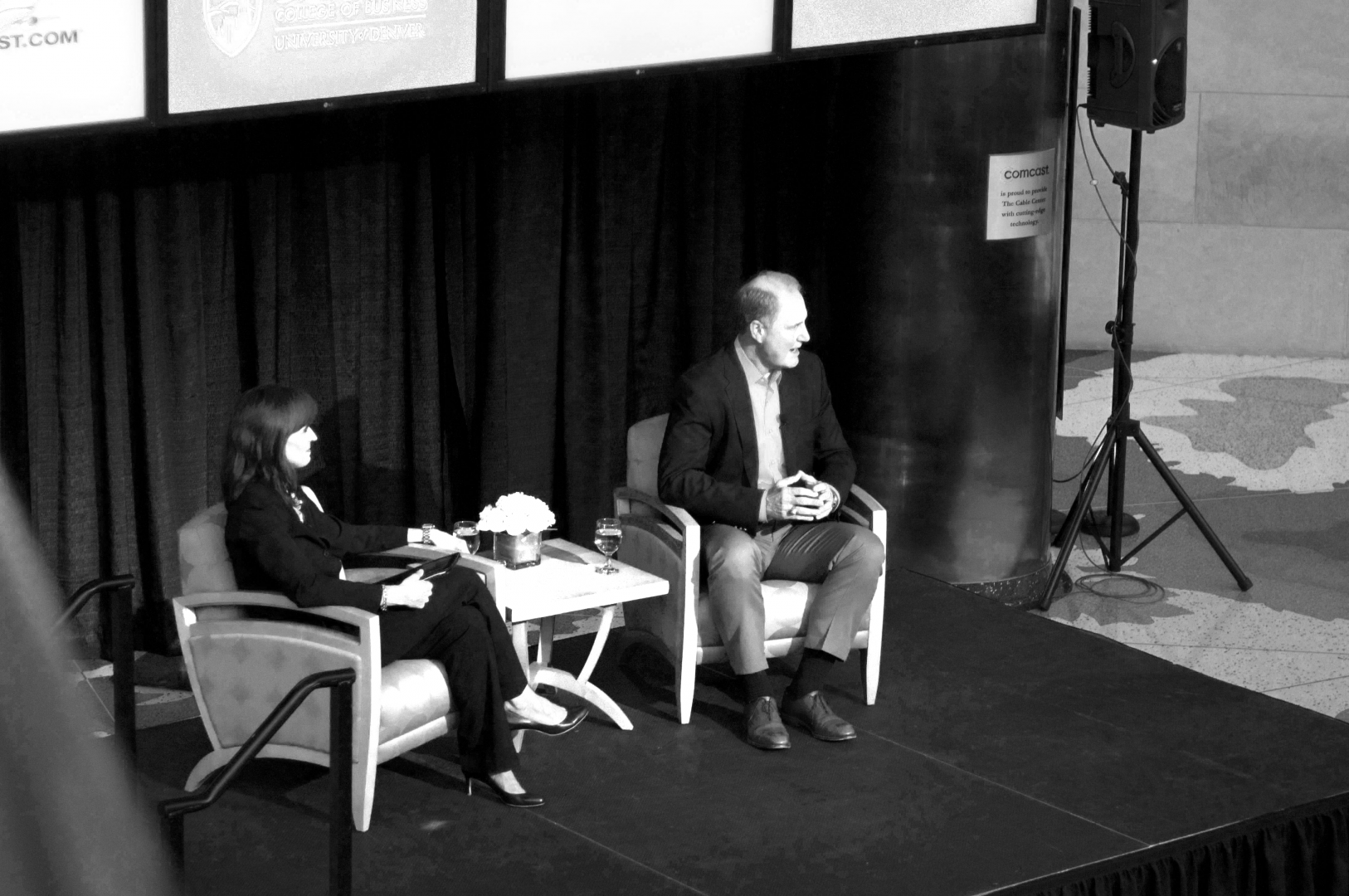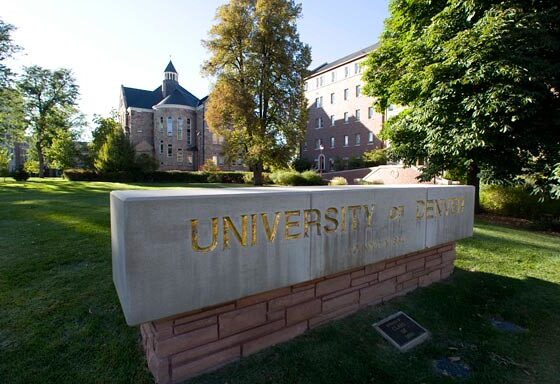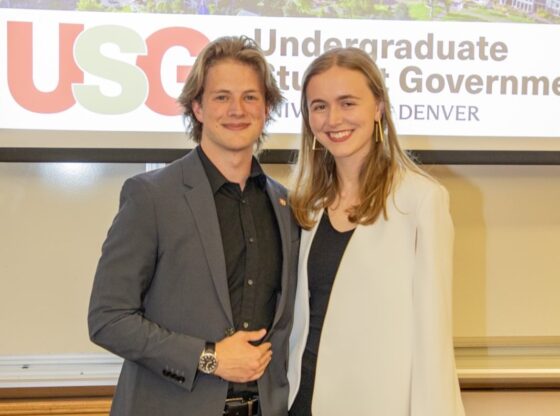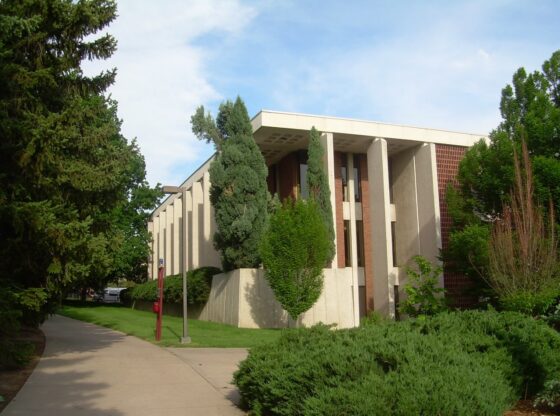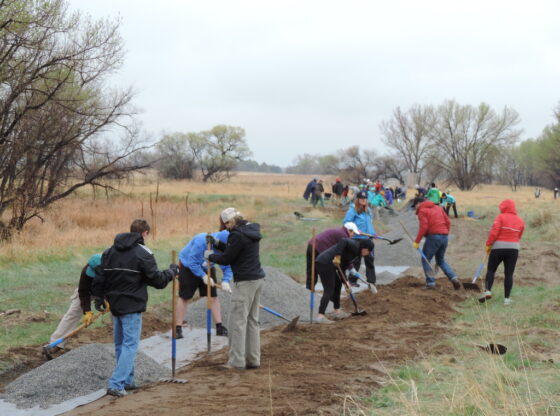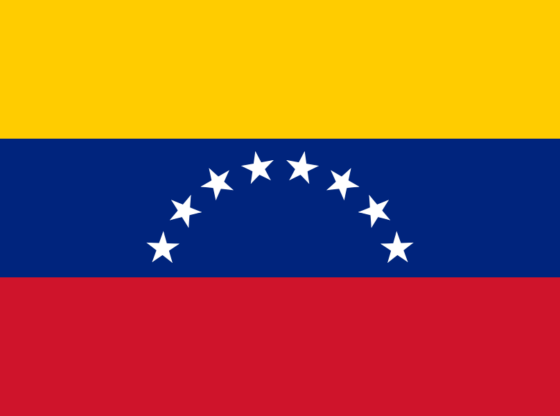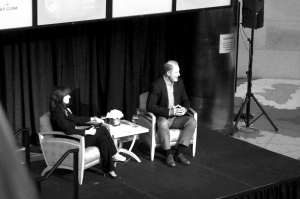
Over 650 people turned out to see Gary Kelly, CEO and chairman of Southwest Airlines, speak last Wednesday night at the Cable Center. The event capped off Daniels’ College of Business Voices of Experience series.
“I don’t think it’s a secret that we’ve been able to get through all the ups and downs of the world in 42 years with low fares,” said Kelly. “Said a different way, that’s the number one thing that people want in addition to, ‘you gotta go to where I want to go.’”
Daniels College of Business Dean Christine Riordan led the event, asking Kelly questions before opening it up to the crowd. Riordan also introduced Southwest as the newest corporate sponsor of Daniels College of Business.
Kelly has served as CEO since 2004 and Chairman of the Board since 2008; Herb Kelleher, co-founder of Southwest, previously occupied the roles before his retirement.
“I was CFO for a long time,” said Kelly. “What I remember most about thinking about becoming CEO, is how humbling it was to think that you were going to represent all different functions within airline and all the complexities and know that all the people are depending on you, at least for some things. It’s right then and there you know that you need your people.”
Kelly noted how much the company has grown since its inception in 1971. Net profit for the company last year was over $400 million.
“When I started in the 1980s, it was very easy to characterize Southwest as a niche player, but to this day—we had maybe 60 airplanes at this point—today, we’ve got close to 700,” said Kelly.
Southwest bought AirTran Airways in 2011; Kelly said they will retire that fleet type by the end of next year.
Kelly said the airline plans to offer flights outside of the contiguous United States in the near future. Kelly said the airline hasn’t grown much in the past four years and said he’d like to have expanded to the rest of North America by the end of the decade.
“I really think the next era for us will be going beyond the borders of the 48 states: Hawaii, Alaska, Canada, Mexico, Central America, the Caribbean,” said Kelly. “The 737 will actually be commissioned all the way down to the northern tier of South America and that’s very exciting.”
Southwest is also planning to replace their current reservation system within the next year.
“Our reservation system right now is homegrown; it’s all domestic,” said Kelly. “There is a fair amount of complexity that is associated with international flying. That work is underway.”
When an audience member asked whether or not the flights would go to Asia or Europe, Kelly said it wouldn’t work, at least not now with the current 737 business model.
“Anything transocean, it will definitely require different equipment,” said Kelly. “I think that we are open to that but we’re getting a little bit further away from our original niche and some of our core efficiencies and I think there’s a right time to consider that but for now, we’re very busy.”
Kelly said Southwest works hard to meet its customers’ needs.
“Customers tell us that they don’t like to be nickel and dimed and so, in my opinion, it’s been a gift from our competitors to all move sort of this way as a herd,” said Kelly. “We’re sort of the lone holdout over here and it just creates a point of differentiation.”
Kelly also addressed the company’s boarding system, which doesn’t assign seats. He said Southwest found that boarding was not as fast with assigned seating.
“My theory is really simple: it is that it’s human nature and if there’s some uncertainty about where you’re going to sit, you’re going to step it up, you’re going to be a little more urgent,” said Kelly. “It is amazing to watch our competitors and how slow it is and how leisurely people go about that.”
Kelly also praised Southwest’s company culture that rewards and celebrates employees.
“I think ‘family’ does the best job of sort of summarizing the passion and emotion that we want to bring to the workforce,” said Kelly. “We’ve got 46,000 family members.”
In an effort to be more environmentally conscious, Kelly said the airline is trying to spend less time in the air and use less fuel. Southwest is also currently retrofitting seats on the current fleet of airplanes, using new, lighter weight materials that take up less space and weigh less. The company is launching a new Boeing 737 model in 2017 to replace less fuel-efficient planes.


